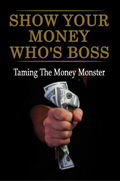Latest Updates
-
Sep 21
2010America is experiencing a political revolution...
“It was the best of times, it was the worst of times, it was the age of wisdom, it was the age of foolishness, it was the epoch of belief, it was the epoch of incredulity, it was the season of Light, it was the season of Darkness, it was the spring of hope, it was the winter of despair, we had everything before us, we had nothing before us, we were all going direct to heaven, we were all going direct the other way - in short, the period was so far like the present period, that some of its noisiest authorities insisted on its being received, for good or for evil, in the superlative degree of comparison only.”
Charles Dickens, English novelist (1812 – 1870) A Tale of Two Cities.
America is experiencing a political revolution. Depending upon which side of the revolution you stand it is either the best of times or the worst of times.
According to various political polls across America, it is a given that several candidates of the populist Tea Party political movement will be elected in the 2010 mid-term elections. Many are predicting a certain Tea Party / Republican / Conservative Democrat take over of the House of Representatives and a possible Senate take over by the same.
A sense of anti-incumbency and skepticism rules the day. The revolution has spread to other parts of the world, as similar movements are now catching on in Italy, Australia, and parts of the European Union.
The Tea Party’s modern genesis was in protest of the February 2009 stimulus package. Since that time additional stimulus programs, continued deficit spending, earmarks, corporate takeovers, healthcare, and a host of other issues have fueled a sense of anger that has been directed at incumbents of both parties.
It is obvious that the Tea Party’s fierce animosity toward Washington and President Obama is rooted in a deep sense of pessimism. That angst centers on the direction the country is heading, and the conviction that the policies of the Obama administration are leading the country in the wrong direction. In a town hall meeting on September 20, President Obama indicated that he embraced some of the ideas held by the Tea Party.
Announcements like that of September 20, 2010 made by a panel of private economists declaring that the recession ended in June 2009 merely feed the skepticism. With unemployment hovering at 9.6%, the majority of Americans laughed at the notion that the recession is over.
Other of the results of that skepticism indicates that large majorities of Republicans (84 %,) Democrats (74 %,) and independents (74 %,) now favor the idea of term limits. This is further reflected by the fact that 70 % of voters disapprove of the job Congress is currently doing. That includes most Republicans (84 %) as well as more than half of Democrats (54 %.)
Who makes up the Tea Party? Some 56 percent identify themselves as conservative. Of those, 44 percent are Republicans, 43 percent are independents, and 13 percent are Democrats. How are they seen by their fellow Americans? Some 39 percent give them a favorable rating, 35 percent unfavorable rating, and 26 percent say they are unable to rate the movement.
The election of numerous Tea Party candidates is likely to have an impact upon the political landscape, which could include your future retirement prospects. A few of the Tea Party’s stated goals include:
1. Demand a balanced federal budget
2. Simplify the tax system
3. Lower taxes
4. Reduce earmarks
5. Limit growth in federal spending
6. Identify the constitutionality of every new law
7. Reject emissions trading: “cap and trade.”
8. Repeal health care legislation
Characterized by liberal, moderate, and progressive media as “out of the mainstream,” Various polls suggest that more than half of Americans are in agreement with many of the goals stated above.
What short and long term impact will the election of Tea Party and other conservative candidates have on your retirement? Believe it or not, they may actually improve its prospects.
If conservatives achieve a takeover of the House and possibly the Senate and are thus able to effect some of the economic changes as outlined above the economy could rebound and regain a sense of stability. On the other hand, congress may find itself in gridlock and the economy may continue to remain stagnant. Time will tell.
If they muster enough support (which has been promised by most every politician over the past 30 years,) to address Social Security, they may be able to improve a program many believe is headed over a cliff somewhere in the future. If they are able to stop deficit spending, balance the budget, and lower taxes one result is that you would have more of your own money to save or contribute toward retirement.
This week CNBC reported the news that the UK’s tax collection agency (Her Majesty’s Revenue and Customs) advanced a proposal that all employers send employee paychecks to the government, after which the government would deduct what it deems appropriate and pay employees with a bank transfer. Can anyone imagine that idea being advanced in America? Sadly, there would be support for that concept among some American citizens. CNBC also reported that more than half of Americans are in favor keeping the Bush tax cuts.
Who knows where we are headed after the November mid-terms. The lame duck session could prove to be a zinger. Change is on the table for 2011. It will be interesting to see where we go from here.
America is experiencing a political revolution.
“It was the best of times, it was the worst of times..."
http://www.christianretirement.com





